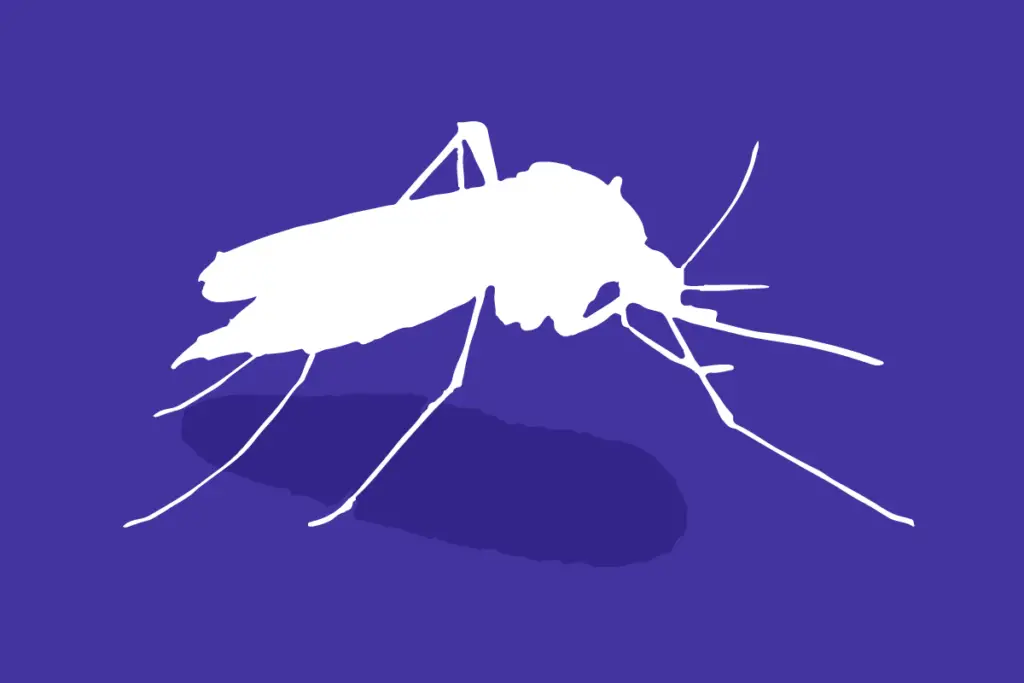Mosquitoes in Crete | Types | Disease | Prevention | Care

Crete is hot and humid during warmer months of the year, creating a perfect environment for mosquitoes. It’s the peak tourists season, when travellers flock to the island to enjoy some downtime. To give you a brief outline of the situation of mosquitoes in Crete:
Mosquitoes in Crete are mostly an annoyance and have not spread any mosquito-borne disease. However, mosquito species present in the area can potentially spread disease. While Greece has recorded few cases of Malaria, West Nile Virus, Dengue Fever, Zika Virus, and Chikungunya, Crete remains free from any instances of these diseases.
Most of the time you will just need some After Bite to treat mosquito bites. It has a specially created formula to help soothe the bite and reduce itching and redness. In fact it is a popular remedy that comes in a tiny bottle for easy carry so you can apply it on the go as you need.
Mosquito Season
The exact timing of the mosquito season can vary depending on the weather and climate conditions each year.
Usually the season starts in April or May as temperatures rise. The peak mosquito season is during summer months, from June to August, when temperatures are at their highest. At this time of year, there is also more standing water, which provides the ideal breeding conditions for mosquitoes. The season ends in late autumn when the weather turns cooler, around September or October.
Types of Mosquitoes in Crete and Disease They Carry
Some of the common mosquito species found in Crete include:
Common House Mosquito (Culex Pipiens)
This is a widespread native species found in urban and rural areas that is brown in colour. It is typically more active from dusk till dawn. It can transmit various diseases, like West Nile Virus, but it is primarily considered a nuisance mosquito in Crete that causes skin irritation.
In 2010 a large outbreak of West Nile Virus occurred in Greece and since then it happens on a yearly basis. Unfortunately in 2022, Greece ranked as the second most affected European country affected by the West Nile virus, trailing only Italy.
In total there were 286 cases in Greece. Central Macedonia in Greece, reported the highest number of cases, accounting for 81.5% of them. With yearly outbreaks, it is likely that cases could crop up in Crete at some point. However authorities are taking necessary measure to control the spread of the disease.
Asian Tiger Mosquito (Aedes Albopictus)
The Asian tiger mosquito is an invasive species that turned up for the first time in Crete in 2014. This means it’s spreading across all of Greece and prefers urban vs rural areas. Unfortunately the number of these mosquitoes is growing because of changing weather conditions.
The Asian Tiger mosquito is known for its distinctive black and white striped appearance. It is an aggressive daytime biter that can transmit diseases such as Dengue Fever, Zika virus, and Chikungunya.
These mosquito-borne diseases are not prevalent in Greece, but cases have risen. At this point cases are only imported into Greece and are not locally transmitted. Between 2013 and 2018 there were 12 cases on dengue, 5 case on Zika and 4 cases of Chikungunya.
Crete has not experienced any cases of these diseases. However if you are travelling to other areas of Greece or find out of cases in Crete you should consider using mosquito repellent.
Most mosquito repellents contain active ingredients like picaridin or oil of lemon eucalyptus. They repel most mosquito species, but not the Asian Tiger mosquito which is persistent. Instead you should use a repellent with a high DEET content like the WHO suggests. It will keep all mosquitoes away including the Asian Tiger.
One repellent that meets the criteria is Jungle Formula. It will keep all mosquitoes away, smells nice unlike other repellents with high amounts of DEET, and 90ml and suitable for carry one luggage.
Aedes Cretinus
Aedes cretinus is a mosquito species endemic to Crete, Greece. While it is closely related to the Asian tiger mosquito (Aedes Albopictus), its competence for transmitting human diseases is not as well-documented.
Anopheles Spp.
Several species of Anopheles mosquitoes are found in Crete. These mosquitoes are known for transmitting malaria, although the risk of malaria transmission in Crete is generally low.
Malaria was historically present in Greece until it got eradicated in 1974. Malaria appeared again in 2010 with 57 reported cases in the Peloponnese. Thanks to effective control measures, the number of cases has significantly decreased over the years.
Crete has not had any cases of Malaria whatsoever thus far. However it is likely that Crete could have cases in the future if cases crop up more regularly on the mainland.
Preventing Mosquito Bites
There are several effective ways to keep mosquitoes away during your stay in Crete. By employing one or more of these methods, you can enjoy a bite-free holiday and protect yourself and your loved ones from the nuisance and potential risks associated with mosquito bites.
Here are some tips to prevent mosquito bites and ensure a pleasant time:
Apply Mosquito Repellents
Mosquito repellents is by far the most popular and best method for preventing mosquito bites. They usually contain active ingredients like picaridin or oil of lemon eucalyptus to repel most mosquito species. However for all round protection from all species including the Asian Tiger mosquito, you can opt for a repellent with a high DEET content like Jungle Formula.
This is especially important since the Asian Tiger can spread several potentially fatal diseases.
Wear Protective Clothing
When outdoors, you can wear long-sleeved shirts, long trousers, and socks to cover your skin. Like this you will make it more difficult for mosquitoes to bite through the fabric.
Avoid Fragrances and Dark Clothing
Mosquitoes are attracted to strong scents and dark-coloured clothing, especially the Asian Tiger. If you opt for fragrance-free products and avoid wearing dark shades, you will be less likely to get bitten.
Use Window Screens
If your accommodation has window screens, use them to keep mosquitoes out while allowing fresh air to circulate.
Employ Air Conditioning
When you’re inside, turning on the air conditioning at a cool setting helps control the indoor temperature and humidity. Cooler temperatures make mosquitoes less active. It reduces their presence and discourages them from lingering around.
From my own experience living in a neighbouring Mediterranean island, if you set the air conditioning to a cool enough level at night, you will avoid mosquito bites even though the mosquitoes are inside the room with you.
If you’re staying in a holiday flat, you can set the air conditioning to the coolest setting possible and opening the bedroom door for about 15 minutes. In this way you will encourage any mosquitoes present to leave the room. As a result you will enjoy a peaceful night’s sleep without their disturbance.
Use Mosquito Nets for Beds
Bed nets create a protective barrier around the sleeping area. They are a time and tested method of keeping mosquitoes away, especially in regions with mosquito-borne diseases.
There are various types of mosquito bed nets, including freestanding and portable models. These nets offer the advantage of not requiring hanging, making them easy to set up. They are also affordable, lightweight, and conveniently fit into your luggage.
Use Citronella Products
Citronella candles, essential oils, or sprays can offer some level of protection in small outdoor areas. You can easily buy them from supermarkets in Crete. The drawback of this method is that you cannot use citronella candles on their own. You will need to pair this method of protection with another for better protection from mosquitoes.
Use a Fan Indoors and Outdoors
Fans can disrupt mosquito flight, making it harder for them to land and bite.
Eliminate Standing Water
Mosquitoes breed in standing water. Hence removing any stagnant water sources around your accommodation will significantly reduce the mosquito population.
Treating Mosquito Bites
Prevention is the best approach to avoid mosquito bites. However, if you do get bitten, it’s essential to resist the urge to scratch the affected area.
While it may be challenging, refraining from scratching will reduce irritation and promote faster healing of the bite.
For added relief, you can try using After Bite, which is available on Amazon and select pharmacies. After Bite is specially designed to soothe and calm irritated skin, providing effective relief from itching and discomfort caused by insect bites. Its portable bottle allows you to carry it conveniently in your pocket wherever you go.
If the bite becomes more irritated, persists, or you experience additional symptoms like a fever, it’s advisable to seek advice from a doctor.
Related Articles

Crete Family Holiday | Kids Activities | Itineraries | Guides

East vs West Crete | History | Activities | Scenery | Beaches

Crete with Kids: Suitability, Activities and Accommodation